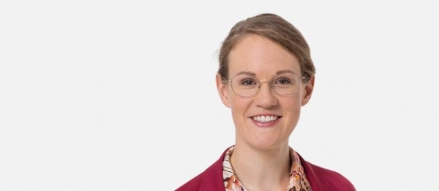
No clear line for travel services – ECJ ruling on Dragoram Tour, C-763/23, from 25/06/2024
No clear line for travel services
Facts of the case
The Romanian travel agency Dragoram Tour buys flight tickets in its own name and sells them on to natural persons at a mark-up. Dragoram Tour does not provide any other supplies apart from information and advisory services in relation to the flight tickets.
ECJ decision
If the ECJ is of the opinion that the answer to a question referred for a preliminary ruling can be clearly derived from the case law, it can, under further conditions, decide by order instead of judgement – which is what happened here. According to the ECJ, the case can be clearly resolved on the basis of the previous judgments Alpenchalet Resorts (C-552/17 of 19 December 2018) and Dyrektor Krajowej Informacji Skarbowej v C. sp. z o.o. (C-108/22 of 29 June 2023). In both cases, the ECJ ruled that an isolated accommodation service can also fall under TOMS.
Accordingly, the ECJ ruled that the sale of flight tickets by Dragoram Tour is subject to TOMS, regardless of the fact that no services other than those mentioned are provided.
The ECJ saw the purpose of TOMS as being to avoid the practical difficulties arising from the fact that travel agencies/tour operators purchase and provide various services that are subject to different place of supply rules. The special regulation means that the place of supply is uniformly where the travel agency/tour operator has established their business.
On the other hand, the purpose of simplification would be defeated if travel services with only one supply element were to be excluded from TOMS. Accordingly, the ECJ has already stated in the aforementioned reference decisions that the purchase and sale of isolated accommodation services are subject to margin taxation. From this, it can be clearly deduced that TOMS is also applicable to Dragoram Tour's transport services, even if no other services were provided apart from information and advice.
Implications
The decision contradicts the opinion of the German tax administration, according to which a bundle of individual services is generally required for the application of TOMS. An exception only applies to isolated accommodation services, but not to isolated transport services. Whether this is still tenable after the decision in the Dragoram Tour case appears questionable.
On the other hand, ECJ case law on the subject does not provide a clear guideline for a new German regulation: the decision in the Dragoram Tour case and the Alpenchalet Resorts and Dyrektor Krajowej Informacji Skarbowej v. C. sp. z o.o. decisions are indeed consistent. However, the ECJ decision regarding Star Coaches (C-220/11 of 1 March 2012) is not consistent with this ruling. In this case, a transport company sold coach transport services purchased from subcontractors, but did not provide any other services. In this case, the ECJ considered the lack of further services to be an exclusion criterion and denied the application of TOMS.
However, the fact that Star Coaches was not a travel agency/tour operator in the usual sense of the word, but performed similar transactions in the context of another activity, did not exclude TOMS per se. It is therefore clear that the nature of the service provider is not a suitable criterion for determining whether isolated transport services are subject to margin taxation.
This also corresponds to the view of the German tax authorities, according to which TOMS applies to all entrepreneurs who provide travel services, regardless of whether this is the sole object of the entrepreneur. For example, this also includes every employer who provides travel services to their employees.
The case law on travel services shows once again that the ECJ is putting aside urgently needed systematisation in favour of an extremely ad hoc approach to the cases submitted for a preliminary ruling. The justification that extending the scope of application of TOMS serves the purpose of simplification is not convincing, because the different place of supply rules are not a problem if only a single element is sold. In addition, margin taxation leads to an additional burden for travelling customers who are VAT taxable persons, as they cannot claim input VAT deduction due to the lack of a VAT statement on the invoice. In this case, margin taxation is at the expense of tax neutrality.
Date: 8.10.2024





